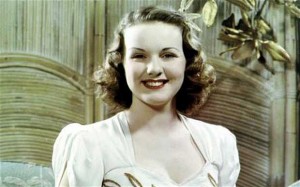BRAMWELL TOVEY – PRESENTATION TO VANCOUVER SCHOOL BOARD APRIL 12th 2016
The following remarks were submitted to VSB in full. Due to time constraints, the text in [brackets] below was omitted from the spoken presentation at the public hearing on April 12th 2016 at Vancouver Technical College.
[Thank you for the opportunity to speak to the VSB budget proposal. ]
[May I take a moment to thank the VSB trustees for their dedication to education in our community. Your stance on LGBT students in Vancouver schools set an example worldwide and is now the norm in right minded communities. Your support of the Vancouver Symphony Orchestra in the schools through our VSO Connects program was pioneering and has enabled the VSO to place musicians in selected schools to support and enhance the music programs.]
[One module of VSO Connects is called “Meet the Maestro”. I’ve made literally hundreds of school visits in the 16 years I’ve lived in Vancouver. This is a free concert for the entire school community where I talk about composition, conducting and the language of music, performing works by Beethoven and Schumann alongside pop and jazz classics and compose a work on the spot with the students’ help which I then perform for them at the piano. I’ve made up raps, ragas and rags to entertain students to bring home the point that in our pluralistic society music is the only language understood by everybody.]
[Additionally, the VSO performs for 50,000 school students every year in the Orpheum Theatre and since 2011 we have run our own community music school with classes from new borns to adult learners – noughties to nineties as we like to say. ]
I am here as Music Director of the Vancouver Symphony Society. As a not-for-profit organization we are unable to get involved with the political concerns that you’ve expressed. That’s not our field of expertise. We are all about the music and the students.
This is the third time in 6 years the VSO has made a presentation to the VSB on the value of music in young people’s lives. I was amazed to hear that it’s the fifth time in 7 years the topic has been raised.
I’ve never met a politician or school trustee who does not profess wholehearted support for music in the school system. Given the weight of academic evidence in favor of the role of music in education, they’d be foolish to do otherwise. It’s evident from the attendance at tonight’s meeting that concerns and emotions run high. After all, music is the language of our emotions.
I find it unlikely that any of the elected trustee would want to be permanently associated with pulling the plug on band and string programs in the Vancouver school district. Remember, the stock of the Mayor of Hamelin sank to an all time low after he refused to pay the Pied Piper.
I also believe none of you would want to seize musical instruments from the hands of students saying “It’s a cost cutting measure that just can’t be helped.”
You’ve told us where VSB believes the blame should lie. No doubt the situation is more subtle and certainly more nuanced, but tweets and headlines are only a few words long.
We believe we need a new way of tackling this issue. Traipsing back to these hearings on average every three years does nothing for the reputation of school trustees or MLAs. It’s distressing for the children who love their band and string programs, and it’s just plain demoralizing for the professional music teachers whose skills and inspirational guidance are so valued by us all.
We’re talking about $400,000, or just over 1% of the entire VSB budget. The sum has already decreased by over $150,000 since the 2014 cuts.
We believe music is a birthright of each child and should be ring-fenced. We strongly urge politicians of all persuasions to establish non-confrontational methods of dealing with this issue so that every child in our city can enjoy the benefits and life-enhancing activities of music without this constant reassessment.
The idea that our city can be an international cultural destination, with visitors from all over the world, a world class symphony, ballet and opera and yet our kids won’t get to hear a note of music in the school system, is just ridiculous.
We need to find a better way forward.
[Thank you for listening and please do the right thing.]
Bramwell Tovey O.C.
Music Director, Vancouver Symphony

